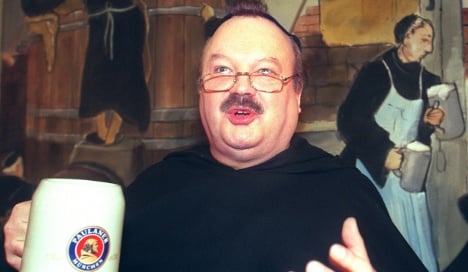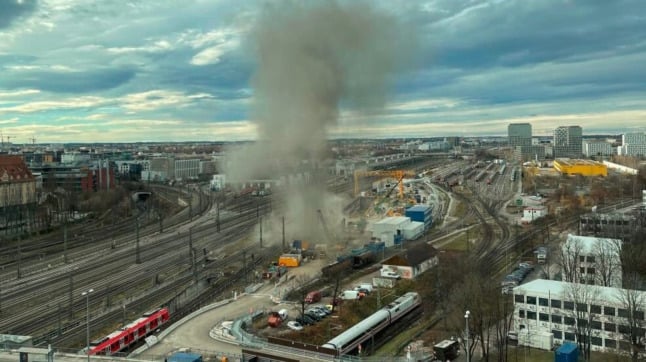The end of Fasching, what Bavarian Catholics call Carnival, heralds the beginning of Lent, the Christian season of fasting. Normally considered a period of abstinence, in beer-crazy Bavaria it’s time to crack open extra strong Starkbier brews.
Starkbierzeit has become such a fixture of Munich’s annual event calendar that locals refer to it as the year’s ‘fifth season.’ The supermarkets are stocked with the strong Doppelbock lager beer brewed only during this time.
The festival hearkens back to the fasting Paulaner monks who brewed the extra strong beer to sustain themselves between Shrove Tuesday and Easter. Today the beer is served only during Lent – but is now quaffed for less pious reasons.
The festivities start on the third Thursday after Ash Wednesday. The first barrel of Triumphator was tapped this year at the Löwenbräukeller on February 25, followed by the other breweries a day later. Beer halls hold special events with traditional dances and music during the following three weeks. Most of the Starkbier revellers head to the Nockerberg to sample a couple of Maß (a one litre mug) of Paulaner’s Salvator. But if you want to dodge the crowds it is worthwhile to check out some of the other beer halls in town.
Since Munich’s Oktoberfest has become mobbed with tourists from around the world, many Munich residents have started retreating to the Starkbier festival. Just as at the Wiesn, plenty of visitors dress up in traditional Bavarian dirndl dress and lederhosen. A slightly less conventional type of leather trousers will be on display at the gay event sponsored the Munich Leather Club (MLC) at the Augustinerkeller.
Several stouts are brewed in Bavaria, but the strong beer is only served during Lent. Since the 14th century monks coming mostly from Italy found it difficult to fast in the harsh Bavarian climate and so they took to the bock beer brewed at the Hofbräuhaus, which didn’t fall under the strict fasting regulations.
In 1629, Bavarian King Maximillian permitted the Paulaner monks to brew their own beer. By raising the brewing wort from 16 percent to 18 percent, the monks made the beer stronger and more filling. This beer was piously named Salvator in honour of Saint Francis of Paola.
In 1773, Friar Barnabas came up with the new recipe for the Salvator. Other breweries started brewing so-called Doppelbock beer in the 19th century and were forced to rename their beer by decree. Since then we have been blessed with creative names for the Starkbier all ending with the same suffix: Triumphator, Maximator, Aviator, Unimator.
Entrance fees for the Starkbierzeit events cost between €8 and €13. Before 5 pm (3 pm weekends) the entrance fee is a mere €1.50. Options include the Nockerberg, Löwenbräukeller, Augustinerkeller, Unionsbräu, and the Perlacher Forschungsbrauerei.



 Please whitelist us to continue reading.
Please whitelist us to continue reading.
Member comments